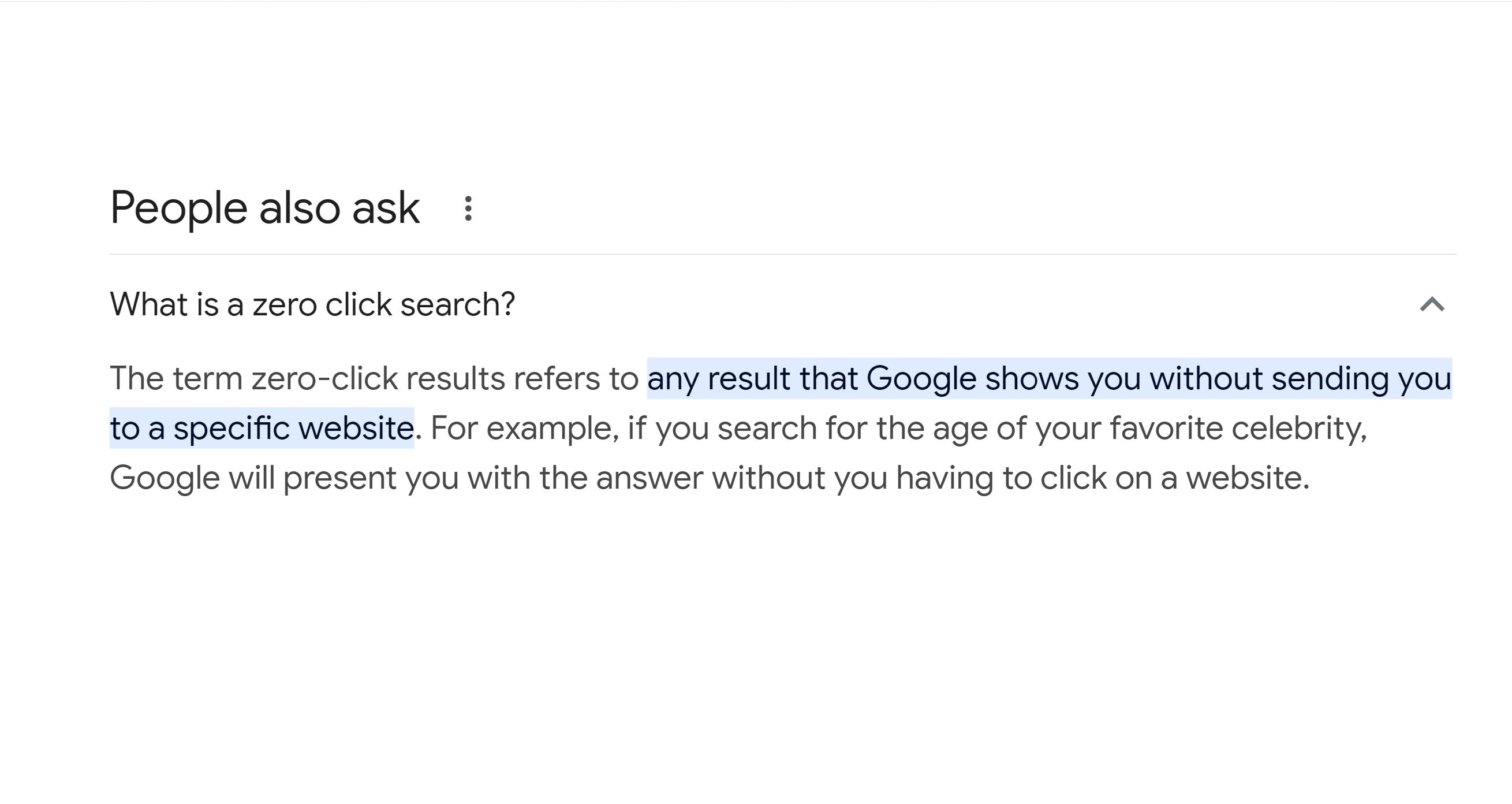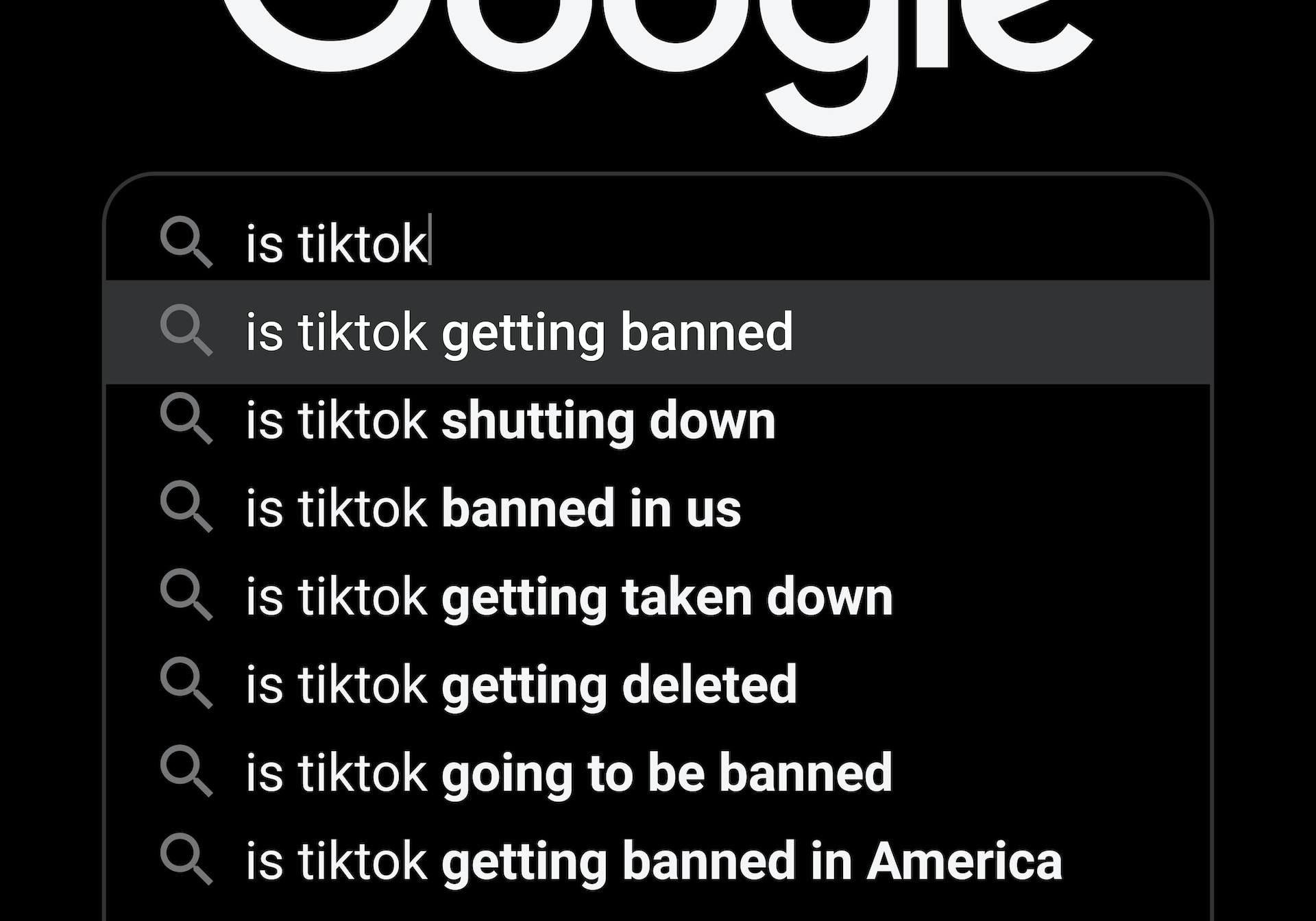The world of SEO is constantly evolving, and it’s important for businesses and digital marketers to stay ahead of the curve. As we look beyond 2024, the future of SEO holds exciting possibilities and challenges. Search engine optimization has come a long way since its inception, and it continues to adapt to changes in user behavior, search engine algorithms, and emerging technologies. In this blog, we will explore the future of SEO, looking at trends, strategies, and technologies that will shape the industry in the coming years.
Table of Contents
A Glimpse into the Future
The future of SEO is full of possibilities, driven by emerging trends, search engine advancements, and the ever-growing field of digital marketing. As we move forward, understanding these trends and technologies will be essential for businesses and marketers looking to maximize their online presence. Let’s take a glimpse into the future of SEO, exploring the rise of mobile SEO, the role of voice search, the importance of local SEO, the concept of zero-click searches, the significance of E-A-T, video SEO, topical authority, evolving search engine ranking factors, and how to prepare for future SEO trends.
The Shift to Mobile SEO
With the rise of mobile devices, it’s no surprise that mobile SEO is becoming increasingly important. In the future, optimizing websites for mobile devices will be crucial for businesses and marketers. Not only does mobile SEO involve creating a mobile-friendly website design, but it also requires focusing on user experience and implementing SEO strategies that cater to mobile users’ search intent. Organic search on mobile devices is on the rise, making it essential to prioritize mobile SEO efforts. By understanding user behavior, search rankings, and mobile-specific search query patterns, businesses can better position themselves in the ever-competitive digital landscape.

The role of voice search in SEO
As voice search continues to gain popularity, it’s important to understand its role in SEO. Voice search allows users to interact with search engines using natural language processing, speaking their search queries rather than typing them. This shift in user behavior requires businesses and marketers to adapt their SEO strategies to accommodate voice search preferences. Optimizing content for voice search involves creating conversational, user-friendly content that answers users’ questions concisely. Understanding user behavior and search intent behind voice queries can help businesses better optimize their content and improve their search engine rankings.

What is Local SEO?
Local SEO focuses on optimizing search results for specific geographic locations. As search engines continue to prioritize local search intent, businesses need to understand the importance of local SEO. Local SEO strategies aim to improve search engine results for businesses targeting local customers. By optimizing their online presence, businesses can increase their visibility in local search results, ultimately driving more organic traffic to their websites. This involves creating relevant content, leveraging user-generated content, managing online reviews, and ensuring accurate business information across local directories. Local SEO plays a crucial role in enhancing search engine results, increasing serp rankings, and driving relevant organic traffic.
Zero-Click Searches
Zero-click searches are altering user interaction with search engine results, and businesses need to adapt their SEO strategies accordingly. Zero-click searches occur when search engine results directly answer user queries, giving them the information they need without having to click through to a website. These instant answers, featured snippets, and direct answers are becoming increasingly prevalent in search engine results, shaping user behavior and search rankings. Optimizing content to appear in featured snippets can significantly improve visibility, increase search rankings, and drive organic traffic.
The Concept of Zero-Click Searches
Zero-click searches have become a common occurrence in search engine results, with search engines providing users with instant answers, direct answers, and featured snippets. The concept of zero-click searches revolves around search engines giving users the information they need right on the search results page, without requiring them to click through to a website. This shift in user behavior has implications for businesses and marketers, as it demands concise, valuable content that directly addresses user search queries. Understanding the concept of zero-click searches and optimizing content to appear in featured snippets can greatly enhance search engine visibility, user experience, and organic traffic.

The Importance of E-A-T
In the world of SEO, quality content is king, and it’s crucial to establish Expertise, Authority, and Trustworthiness (E-A-T). Google and other search engines prioritize websites that provide helpful, reliable, and relevant content to users. E-A-T emphasizes the importance of creating content that aligns with user search intent, provides useful information, and demonstrates expertise in a particular field. By focusing on E-A-T, businesses can improve their search engine rankings, attract organic traffic, and establish themselves as leaders in their industry.
Defining E-A-T
When it comes to SEO, E-A-T represents three key elements: expertise, authority, and trustworthiness. Expertise involves creating content that demonstrates a deep understanding of a specific topic or industry. Authority is built through content that resonates with the target audience, garners engagement and is recognized as valuable in the industry. Trustworthiness is crucial for developing credibility, which can be achieved by providing accurate, reliable, and helpful content. By focusing on E-A-T, businesses can optimize their content strategy, improve user experience, and ultimately enhance their search engine rankings.
Strategies to Improve E-A-T
Improving E-A-T requires a strategic approach to content creation and optimization. Here are some strategies to enhance E-A-T:
- Develop a comprehensive content creation strategy that aligns with user search intent and addresses their needs.
- Implement best practices for content creation, including conducting thorough research, incorporating relevant keywords, and writing high-quality, helpful content.
- Leverage user-generated content, such as customer reviews and testimonials, to establish authority and build trustworthiness.
- Utilize SEO tools and analytics to track user behavior, measure engagement, and identify areas for improvement in content strategy.
- Provide helpful, informative content that answers user search queries, addresses pain points, and adds value to their online experience.
- By implementing these strategies, businesses can improve their E-A-T, attract organic traffic, and position themselves as industry leaders.
Video SEO: The New Frontier for Digital Marketing
Video content has become increasingly popular and is shaping the future of digital marketing. Video SEO involves optimizing videos for search engine visibility, ensuring they appear in search results and attract organic traffic. Video SEO requires a different set of strategies compared to traditional SEO. Creating engaging video content, optimizing titles, descriptions, and tags, and incorporating relevant keywords are essential for search engine visibility. Providing a seamless user experience, high-quality content, and enticing visuals is also crucial for maximizing engagement and search rankings. As digital marketing continues to evolve, video SEO will play a significant role in content creation, user experience, and organic traffic.

Tips for Optimizing Video Content
Optimizing video content for search engine visibility requires a strategic approach. Here are some tips for optimizing video content:
- Utilize descriptive titles, tags, and video descriptions rich in relevant keywords to improve search rankings.
- Create high-quality content that addresses user intent, provides value, and engages the target audience.
- Implement schema markup to enhance video search results, increase search engine visibility, and attract organic traffic.
- Focus on creating helpful content that answers user search queries effectively, ensuring it aligns with relevant keywords and search intent.
- Optimize video content for voice search, as voice assistants become more prevalent, capturing the rising trend of voice search usage.
- By following these tips, businesses can successfully optimize their video content, improve search engine visibility, and drive organic traffic.

What is Topical Authority?
Topical authority refers to a website’s expertise, knowledge, and credibility in a specific subject or industry. Keeping up with SEO trends, search engine optimization, and content writing is crucial for establishing topical authority. Search engines recognize websites that consistently produce relevant, high-quality content focused on a specific topic. By becoming an authoritative source of information, businesses can improve their search engine rankings, attract organic traffic, and increase user engagement. Establishing topical authority requires a comprehensive content strategy, incorporating keyword research, user intent, and industry trends. By consistently delivering valuable, in-depth content, businesses can position themselves as leaders in their respective fields and drive organic traffic to their websites.
Establishing Topical Authority: Why and How?
Establishing topical authority is crucial for showcasing expertise, building credibility, and attracting organic traffic. Here’s why and how to establish topical authority:
Why:
- Increased search rankings: Search engines prioritize websites with topical authority, improving search rankings and visibility.
- Trust and credibility: Establishing topical authority builds trust with users, who recognize the website as an expert in the field.
- Organic traffic: With improved search rankings, websites can attract organic traffic from users seeking relevant, authoritative content.
- How:
- Conduct keyword research to identify relevant keywords and search queries related to the chosen topic.
- Develop a content creation strategy that focuses on delivering comprehensive, valuable content to meet user search intent.
- Optimize content for search rankings by incorporating relevant keywords, meta tags, and schema markup.
- Engage with the target audience through social media, forums, and other platforms, establishing authority and building credibility.
- Continuously monitor industry trends, user search behavior, and search rankings to refine content strategy and maintain topical authority.
- By following these strategies, businesses can establish topical authority, improve search rankings, and drive organic traffic.
A Successful Implementation of Topical Authority
Successful implementation of topical authority results in increased organic traffic, improved search rankings, and user engagement. By adopting the right SEO strategies and creating relevant, high-quality content, businesses can achieve a successful implementation of topical authority. The following factors contribute to a successful implementation:
- SEO strategies aligned with user search intent: Understanding user behavior and search intent is crucial for creating content that resonates with the target audience.
- Focus on relevant content: Delivering comprehensive, valuable content that addresses user search queries effectively is essential for establishing topical authority.
- Optimized website and content structure: SEO best practices, including keyword optimization, meta tags, and schema markup, contribute to improved search rankings and organic traffic.
- Consistency and quality: Consistently delivering high-quality content that is updated regularly helps establish trust and credibility, attracting a loyal audience and driving organic traffic.
- By implementing these strategies and consistently providing relevant, authoritative content, businesses can successfully establish topical authority and reap the benefits of increased organic traffic and search rankings.
Evolving Search Engine Ranking Factors
Voice search optimization will increasingly shape SEO strategies as AI and machine learning become pivotal in search algorithms. User experience and engagement metrics will hold greater weight in SERP rankings, emphasizing the importance of local SEO for businesses with physical locations. Additionally, featured snippets and rich snippets will continue to dominate Google search results, highlighting the ever-evolving landscape of the SEO industry. Adapting to these ongoing changes may be a daunting task, but it’s essential for SEO experts to keep pace with best practices and new developments.

The Changing Landscape of SEO Ranking Factors
The landscape of SEO ranking factors is continuously changing, influenced by machine learning, search engine optimization trends, and user behavior. As search engines become more sophisticated, user experience and relevant content play a larger role in determining search rankings. Machine learning algorithms analyze user behavior, engagement metrics, and quality signals to deliver more personalized search results. Search engine optimization is no longer solely focused on keyword optimization, but also includes factors such as user intent, mobile optimization, voice search, and social signals. As the SEO industry continues to evolve, it’s crucial for businesses and marketers to stay updated with the latest trends and adapt their strategies accordingly. By incorporating user experience best practices, providing high-quality content, and adapting to emerging SEO trends, businesses can improve their search rankings, attract organic traffic, and stay ahead of their competitors.
How to Prepare for Future SEO Trends?
Preparing for future SEO trends requires businesses and marketers to stay updated with the latest developments in digital marketing, emerging technologies, and search engine algorithms. Here are some strategies to prepare for future SEO trends:
- Stay updated with SEO trends and industry news to understand emerging technologies, search engine algorithm changes, and user behavior trends.
- Embrace new technologies, such as generative AI, to automate repetitive SEO tasks, gather insights, and optimize content creation.
- Focus on user experience, as search engines increasingly prioritize user engagement, site speed, mobile optimization, and responsive design.
- Continuously adapt content strategy to match evolving user search intent and preferences, leveraging new content formats, such as video and voice search optimization.
- Utilize SEO tools that offer advanced analytics, keyword research, and competitor analysis to better understand user behavior and stay ahead of the competition.
- By preparing for future SEO trends, businesses can position themselves for success, adapt to emerging technologies, and proactively optimize their online presence for search engine visibility and organic traffic.
How is User Search Intent Shifting?
User search intent is continuously evolving, driven by changes in user behavior, search query patterns, and emerging technologies. Understanding how user search intent is shifting is crucial for businesses and marketers to optimize their content strategy and stay relevant. User behavior is influenced by various factors, including voice search, personalized search results, and the rise of AI-powered digital assistants. By analyzing user search queries, leveraging keyword research, and staying updated with industry trends, businesses can better understand user search intent and tailor their content to meet user’s evolving needs. Adapting to shifting user behavior and search intent can enhance website traffic, improve search rankings, and ultimately lead to better user engagement and conversion rates.

Frequently Asked Questions
Is the future of SEO dead?
No, the future of SEO is not dead. As search engine algorithms and user behavior continue to evolve, SEO will adapt and continue to be relevant for digital marketing strategies. Although approaches and best practices may change, optimizing content, improving user experience, and staying ahead of search engine trends will always be important for businesses looking to maximize their online presence.
Where is the SEO game headed?
The SEO world is constantly evolving, influenced by search engine algorithms, emerging technologies, and user behavior. It is headed towards more personalized search results, voice search optimization, mobile-first indexing, and an emphasis on user experience and relevant content. Staying updated with SEO trends, optimizing for user intent, and utilizing new technologies will be essential for businesses and marketers to stay competitive in the ever-changing SEO landscape.
Will AI replace SEO jobs in the future?
While AI has the potential to automate some aspects of SEO, it is unlikely to completely replace jobs in the industry. SEO requires a combination of technical and creative skills, as well as human input for tasks like content creation, keyword research, and link building. Rather than replacing jobs, AI is expected to enhance the effectiveness of SEO strategies, create new opportunities, and aid in generating valuable insights.
Is SEO a good career investment for the future?
- SEO continues to be a valuable and in-demand skill in the digital marketing industry.
- As more businesses move online, the demand for SEO professionals is expected to increase.
- Pursuing a career in SEO can be a good investment, provided you stay updated with industry trends, continuously learn new strategies, and adapt to changes in search engine algorithms.
- SEO professionals who possess a combination of technical knowledge, analytical skills, and creativity will always be in demand in the digital marketing industry.
What role will emerging technologies, such as AI and voice search, play in the future of SEO?
The future of SEO will be heavily influenced by emerging technologies like AI and voice search. These technologies are already playing a significant role in shaping the way search engines deliver results. AI will personalize search results, while voice search requires a different approach to keyword research. Optimizing featured snippets and answer boxes will also become crucial in this evolving landscape.
Conclusion
In conclusion, the future of SEO is constantly evolving, and staying ahead of the curve is crucial for success in the digital landscape. With the rise of mobile SEO, voice search, local SEO, zero-click searches, E-A-T, video SEO, topical authority, and changing search engine ranking factors, it’s clear that the SEO game is headed towards a more user-centric approach. While emerging technologies like AI and voice search will play a significant role, it’s important to remember that SEO is a long-term investment and a valuable career choice. By understanding and adapting to these future trends, you can position yourself for success and ensure your website remains visible and competitive in the ever-changing search engine algorithms. So stay informed, embrace innovation, and continue to provide valuable content that meets the evolving needs of users.
















